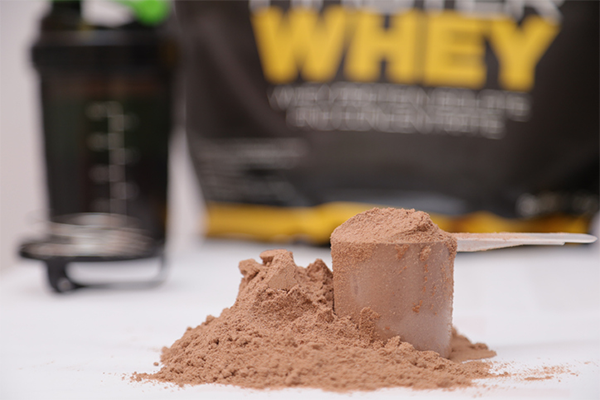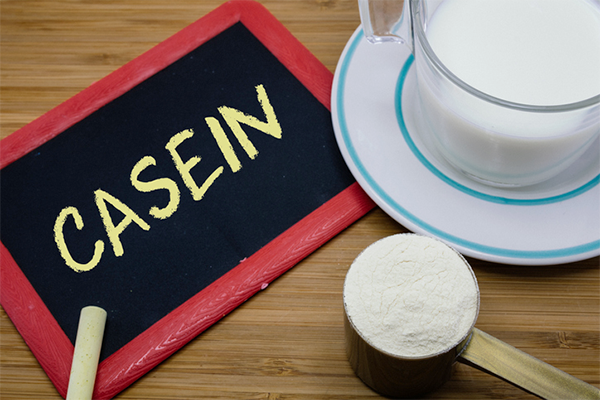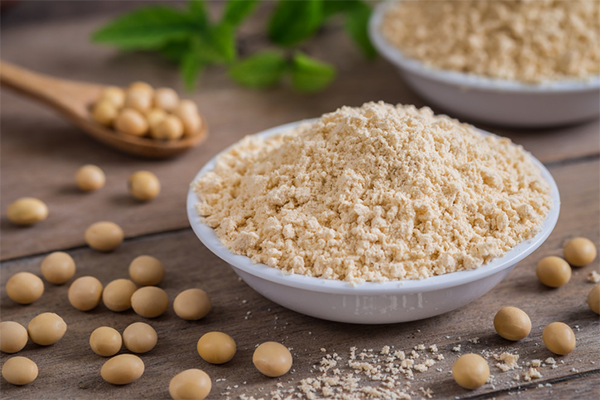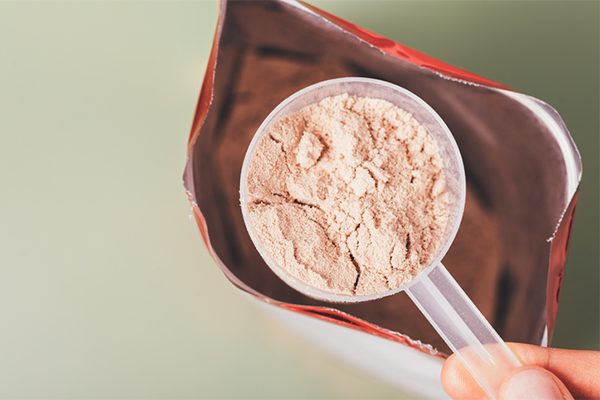Protein powder is made to be a handy, tasty approach to get protein you want on the go — merely combine the powder with water, milk, or in a smoothie, and drink. However is protein powder good for you?
And is it simply pretty much as good — or higher — than protein that comes from meals?
Listed here are some issues to think about earlier than you put money into a protein powder complement.
What Is Protein Powder?
Protein powder is a concentrated type of protein that outcomes from processing milk or sure plant meals.
In the event you’re trying to construct muscle or reduce weight, protein powders could make it simpler to hit your every day protein consumption objectives (extra on the significance of this later).
Whereas there are various various kinds of protein powder, the vast majority of protein you’ll discover lining the cabinets on the complement retailer fall into three classes:
1. Whey protein powder

Whey protein is a fast-digesting protein created from milk — extra particularly, the liquid that’s left over when solids are eliminated, which is then processed into powder.
There are three sorts of whey protein powder:
“One good thing about whey protein is that it’s a good supply of branched-chained amino acids (BCAAs), which can play a job in aiding in muscle progress and restoration,” says Bansari Acharya, R.D.N., registered dietitian nutritionist and contributor at FoodLove.
2. Casein protein powder

Casein protein can be present in milk, however in contrast to whey, it doesn’t dissolve as shortly in your abdomen acid, so it’s “digested and absorbed at a slower charge,” says Acharya. “The result’s a extra gradual entry to your muscular tissues, which can result in muscle mass progress.”
As a result of it’s a slow-digesting protein, casein is very helpful when consumed earlier than mattress.
3. Plant-based protein powder

Plant-based protein powders are created from plant sources like beans, legumes, seeds, and/or grains.
Pea protein, from the yellow split-pea, is among the most typical plant-based powders. “It comprises all amino acids, which incorporates BCAAs,” says Acharya.
In the event you don’t just like the style of pea protein, your subsequent finest guess is soy protein powder.
Soy protein powder can be plant-based, however like whey and casein, it comprises sufficient of all of the important amino acids our our bodies have to be thought of “full.”
Whereas soy is of course wealthy in health-promoting vitamins like isoflavones, analysis reveals these advantages are extra seemingly from entire meals sources which can be minimally processed. This leaves the jury nonetheless out if those self same advantages will be seen from soy protein powder.
Hemp and rice protein powder are additionally pretty frequent however may not be fairly as efficient as pea or soy. Hemp protein comprises omega-3 fatty acids, however it’s low in leucine (the amino primarily accountable for muscle progress), and rice protein lacks an entire amino acid profile.
Protein powders may additionally be fortified with fiber, antioxidants, and nutritional vitamins and minerals, however these extra advantages differ between producers, manufacturers, and their particular formulations. That’s why you need to all the time verify the labels on any complement you buy.
Is Protein Powder Good for You?

Protein powder is a stable possibility if you wish to up the quantity of protein you’re getting every day that will help you meet well being objectives, like constructing extra muscle or dropping just a few kilos.
Whereas downing a protein shake earlier than or after a exercise received’t robotically equal a decrease quantity on the size, it provides to the quantity of protein in your weight loss program.
We have to eat, at a minimal, 0.8 grams of protein per kilogram of physique weight a day — that’s 54 grams for an individual weighing 150 kilos. For these trying to construct muscle or reduce weight, that quantity jumps as much as round 2.2 grams per kilogram of physique weight.
Growing that quantity can assist your physique burn extra energy a day, which might result in weight reduction.
Moreover, protein powder “could lower your urge for food and aid you really feel fuller for longer, which might help in weight reduction,” she provides.
Protein is proven to promote satiety so you are feeling fuller for longer and lower ghrelin, the starvation hormone.
That stated, getting in your protein by way of a powder may not be a sensible choice for those who’re delicate or allergic to dairy or soy, or have sure medical situations that have an effect on your physique’s capability to digest further protein.
And since protein powder doesn’t all the time style good by itself, many corporations add synthetic sweeteners to make it style higher, so all the time verify the ingredient labels.
Learn how to Incorporate Protein Powder Into Your Food regimen

Protein powder dietary supplements ought to be simply that — a complement to a nutritious diet, not a alternative for nutrient-rich entire meals.
Getting protein from entire meals sources is necessary to get all of the vitamins the physique wants, corresponding to nutritional vitamins, minerals, wholesome fat, and fiber, says Kimszal. “Relying solely on protein powder could restrict the variety of contemporary greens within the weight loss program resulting in decrease consumption of fiber,”
So when must you use protein powder? While you want a handy approach to make a dent in your really useful every day protein consumption.
“Protein powder can come in useful for those who’re making an attempt to construct muscle” or often do high-intensity or endurance-based exercises, says Acharya.
Whereas any supply of protein will help with post-workout muscle restore and restoration, it’s not all the time simple to sit down right down to a full meal.
However mixing a scoop of protein with water — or indulging in a smoothie — after you towel off can simply kickstart the method whilst you get on along with your day.

